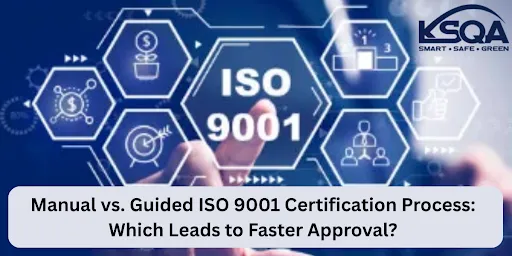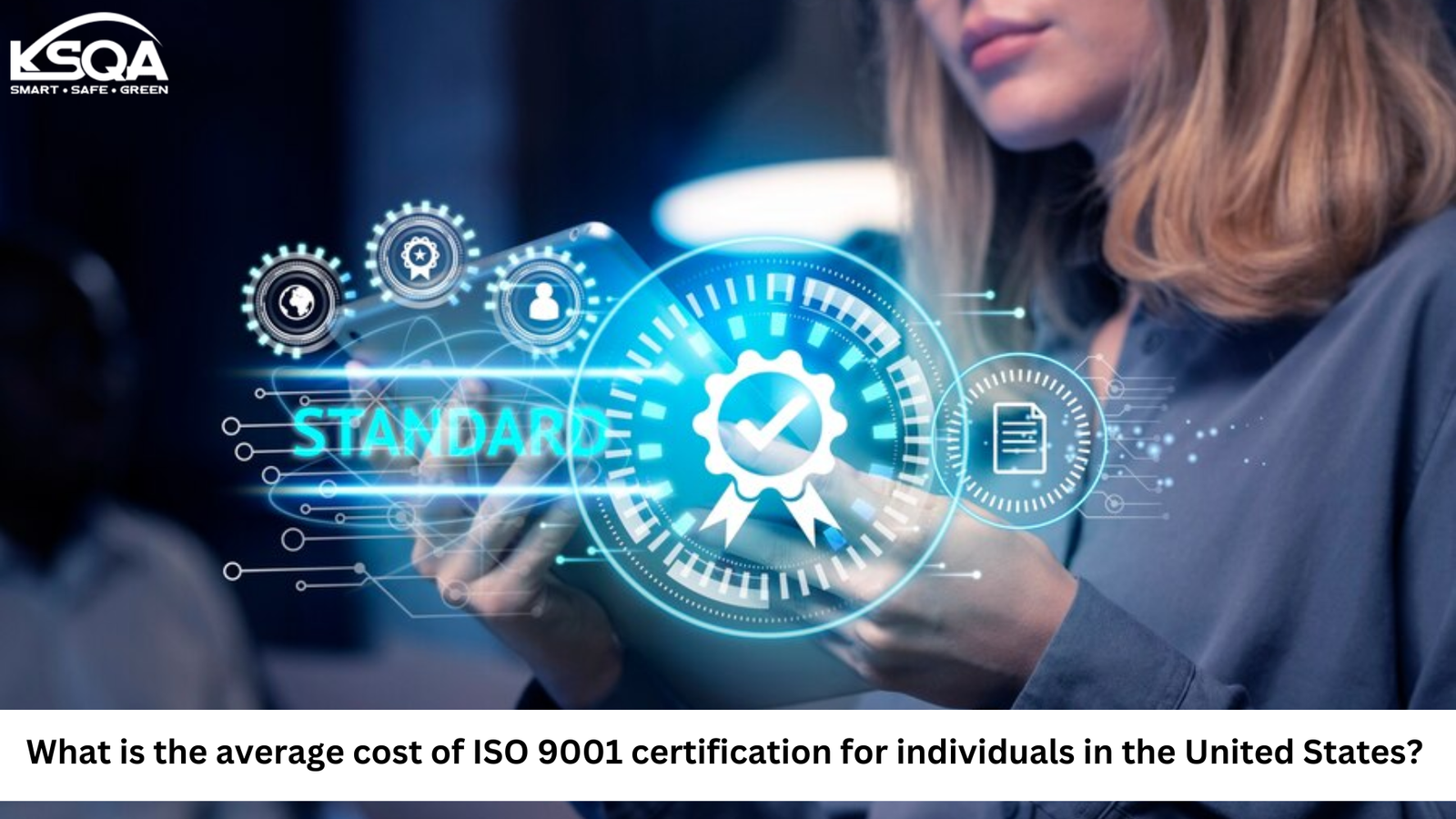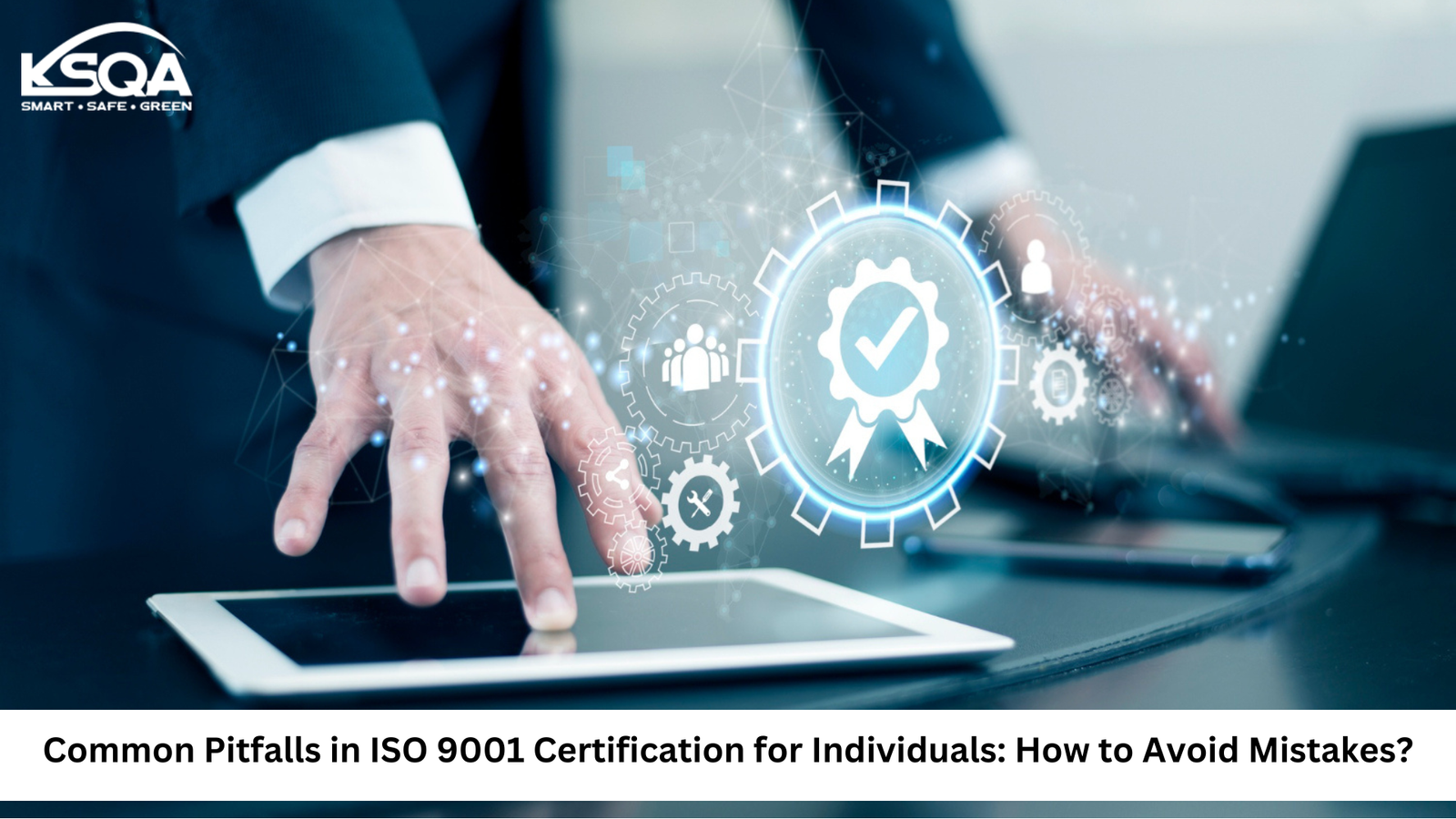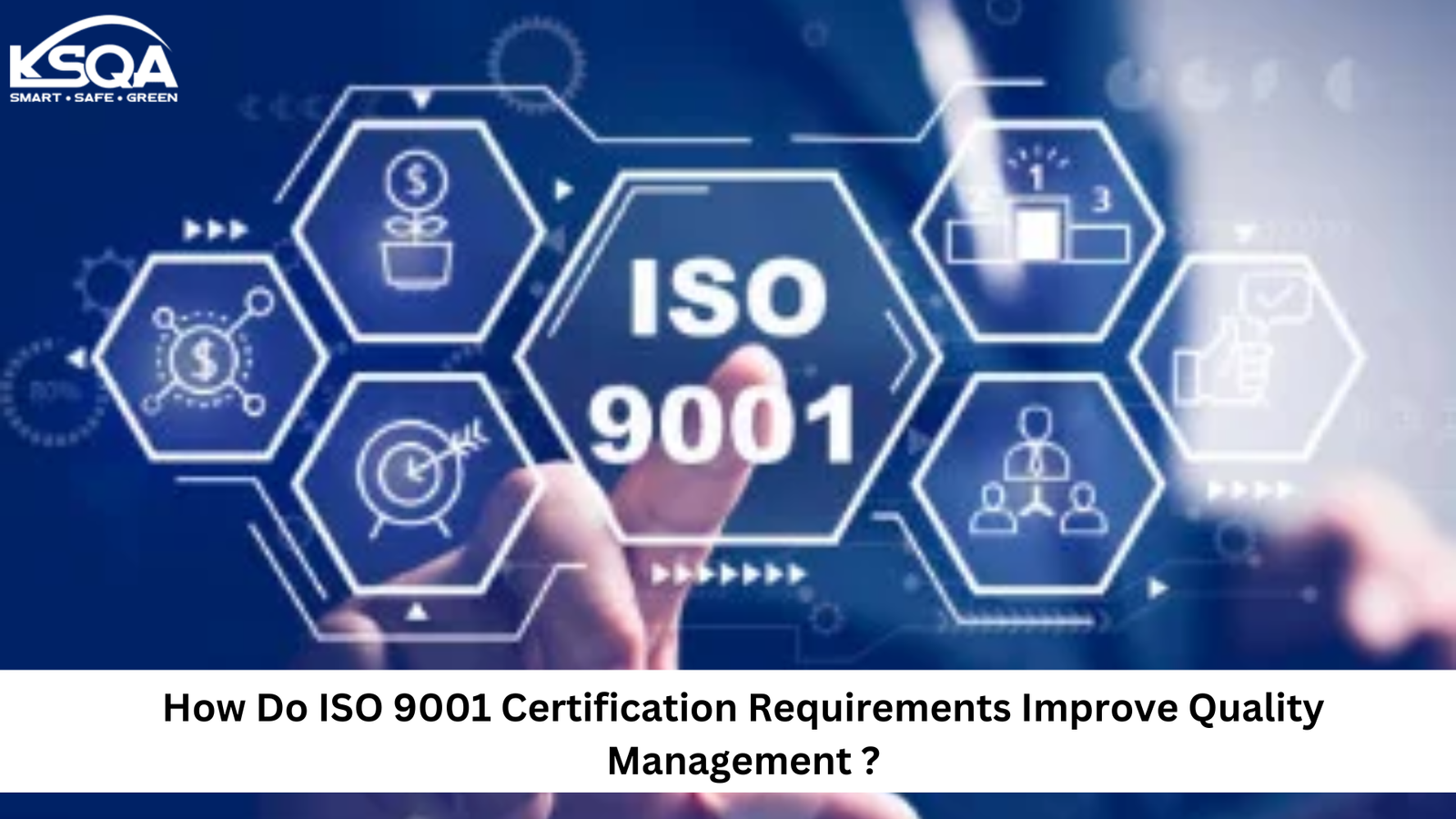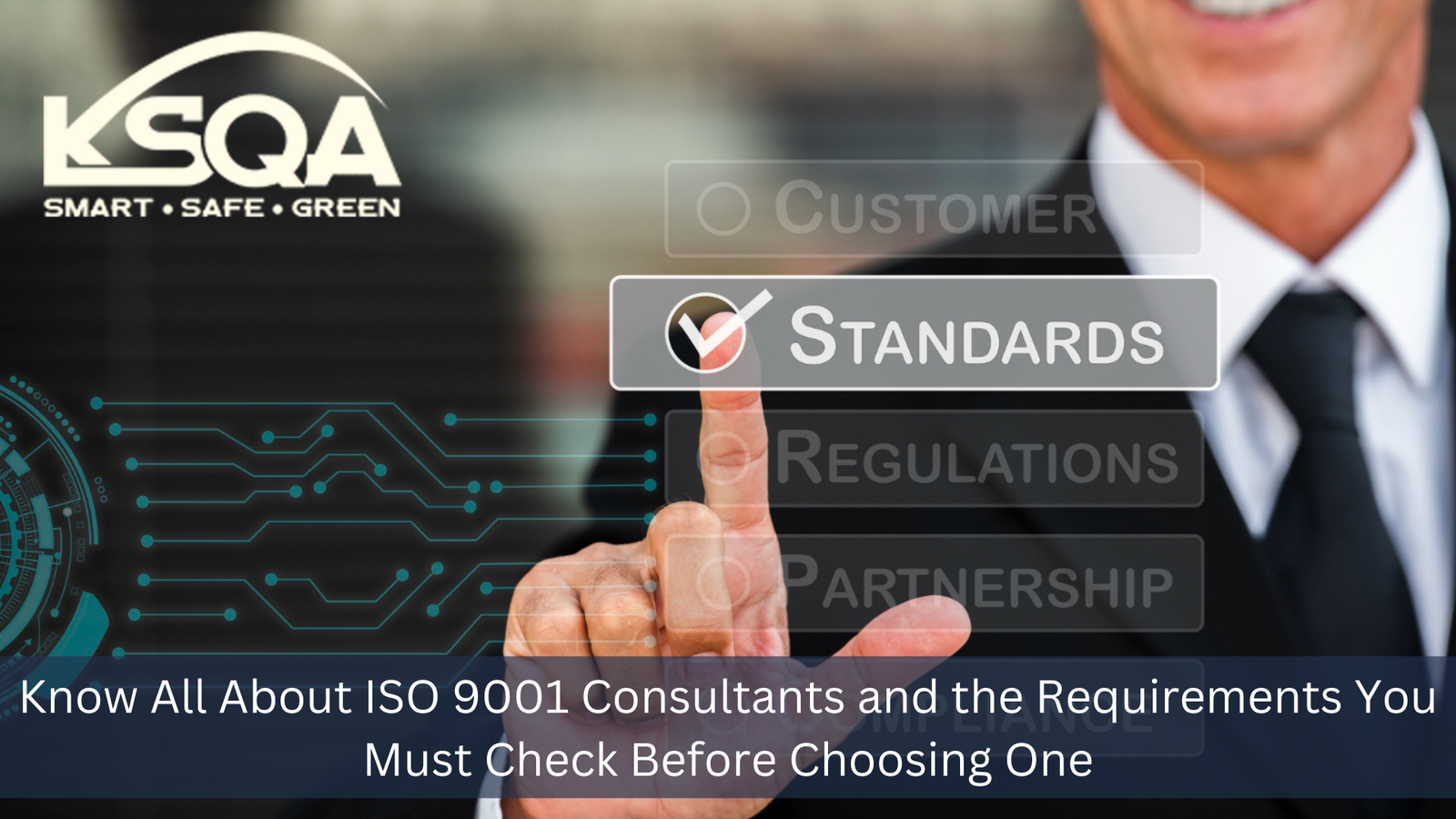In the world of making things good, ISO 9001 certification is like a gold star for being excellent. It shows that a company or a person is really committed to making the best products and services. This blog is here to help individuals understand the costs involved in getting this special certification.
In this blog, we’ll break down the ISO 9001 certification cost for individuals and talk about how both people and businesses can manage these costs wisely. Let’s make the journey toward quality excellence simple and clear!
What Are The Costs Involved In ISO 9001 Certification for Individuals?
Before diving into the costs, let’s grasp the essence of ISO 9001 certification. It’s a recognized standard that sets the benchmark for quality management systems. Whether you’re an auditor, a quality professional, or someone eager to enhance your skills, ISO 9001 certification can be a gamechanger.
For individuals seeking ISO 9001 certification, the costs can vary based on several factors
1. Training Programs
Enrolling in ISO 9001 training programs is a common step. Costs for these programs can differ, with options ranging from in person classes to online courses. The format and duration of the training can influence the overall cost.
2. Examination Fees
Some certification bodies require individuals to pass an examination to demonstrate their understanding of ISO 9001 standards. Examination fees are part of the cost structure and vary depending on the certifying body.
3. Study Materials
Acquiring study materials, including books, guides, and practice exams, is often necessary for exam preparation. These materials contribute to the overall certification cost.
What Are The Benefits From Making the Investment in ISO 9001 Certification?
1. Enhanced Trust and Credibility
ISO 9001 certification is like a trust badge. When a business or individual has it, customers and partners feel more confident because it shows a commitment to high quality standards. It’s like saying, “You can trust us to deliver excellence.”
2. Better Business Opportunities
With ISO 9001, new doors open. It’s not just a certification; it’s an invitation to more business. Other companies and clients prefer to work with those who have this certification, creating more chances for success.
3. Improved Quality and Efficiency
ISO 9001 is like a guidebook for doing things right. It helps businesses or individuals organize their work in a smart way. This means fewer mistakes, smoother operations, and a focus on making things even better over time.
4. Customer Satisfaction Boost
When customers see that a business or individual has ISO 9001, it’s like a signal that says, “We care about your satisfaction.” This often leads to happier customers because they know they can expect topnotch products or services.
5. Global Recognition
ISO 9001 is like speaking a universal language. It’s recognized all around the world. This global recognition means that a business or individual with this certification can stand tall not just locally, but on an international stage too.
6. Reduced Risks and Mistakes
ISO 9001 is like a guardian against problems. It helps identify and manage risks before they become big issues. This reduces the chances of mistakes, making the journey smoother and safer.
7. Continuous Improvement Culture
ISO 9001 isn’t just about getting a certificate; it’s a mindset. It encourages businesses or individuals to always look for ways to do things better.
It’s like saying, “We’re not stopping here, we’re always on the path of getting even better.” This culture of continuous improvement sets the stage for long term success.
What Are The Factors Influencing ISO Certification Costs ?
1. Size of the Business
Big businesses are like large ships. Steering them toward ISO certification takes more effort because there’s a lot to organize and make sure everything follows the ISO rules. So, the cost for a big business is usually higher.
2. Type of Industry
Different industries have different ISO rules. It’s like each industry has its own map for the journey to ISO certification. Some industries might have extra stops or interesting sights along the way, making the journey a bit more complex.
3. Consultancy Support
Think of consultants as guides for the ISO journey. Some businesses hire these guides to make sure they stay on the right path. Having a guide can be helpful, but it adds to the overall cost of the journey.
4. Employee Training
Before starting the ISO journey, everyone needs to know the route. Training employees is like giving them a map. It ensures that everyone understands the ISO rules, but training comes with its own cost.
5. Documentation Work
Documenting everything is like taking notes during the journey. It helps remember the best routes and practices. For ISO, creating these documents is necessary, but it also adds to the overall cost of the certification journey.
6. External Audits
Imagine a checkpoint during the journey where someone checks if everything is going as planned. ISO requires external audits to make sure the business is following the rules. These audits, like checkpoints, contribute to the overall cost.
7. Continuous Improvement Commitment
ISO is not just a one time journey; it’s a commitment to keep making things better. This continuous improvement mindset is crucial. It’s like saying, “We’re not stopping after we get ISO certified; we’ll always look for ways to improve.” This commitment influences the overall effort and cost.
How To Manage ISO Certification Costs ?
1. Make the Most of Online Tools
Just like finding free travel guides online, use available resources. There are online materials and templates for ISO that can guide you without extra costs. It’s like saying, “Let’s use the free resources available for our journey.”
2. Engage with Certification Organizations
Some certification bodies offer tailored solutions for small businesses. It’s like finding a travel agency that understands your needs. Collaborating with certification bodies that offer cost effective options can be beneficial.
3. Encourage Employee Involvement
Like having travel companions, involve employees in the ISO journey. Their insights and efforts can contribute without additional costs. It’s like saying, “Let’s make this journey a team effort.”
4. Benchmarking with Peers
Connect with other businesses on a similar ISO journey. It’s like talking to fellow travellers to get tips. Benchmarking helps you understand what others are doing and find cost effective practices.
5. Plan for Surveillance Audits
Think of surveillance audits as regular check-ins during the journey. It’s like saying, “Let’s be ready for these regular checkpoints.” Planning for surveillance audits helps manage costs associated with external assessments.
6. Explore Flexible Consultancy Models
Instead of long term contracts, consider consultancy models based on your needs. It’s like hiring a guide for specific parts of your journey. Flexible consultancy arrangements can be more cost effective.
7. Invest in LongTerm Savings
Some investments during the ISO journey might have long term benefits. It’s like choosing a more fuel efficient car for a road trip. Investing in things that lead to continuous improvement can save costs in the long run.
Managing certification costs is about being strategic and finding ways to make the journey efficient without overspending. It’s like planning a trip where every decision is made with the overall budget and goals in mind.
Conclusion
ISO 9001 certification is an investment in quality excellence, whether you’re an individual seeking career advancement or an organization aiming to enhance credibility and market access.
Understanding the iso 9001 certification cost for individuals includes managing them strategically, and recognizing the potential returns on investment are key elements of a successful certification journey.
Ready to boost your business with ISO 9001? Explore affordable certification options from KSQA today and invest in the success of quality excellence. Contact us to manage costs wisely and embark on the journey to ISO certification!



